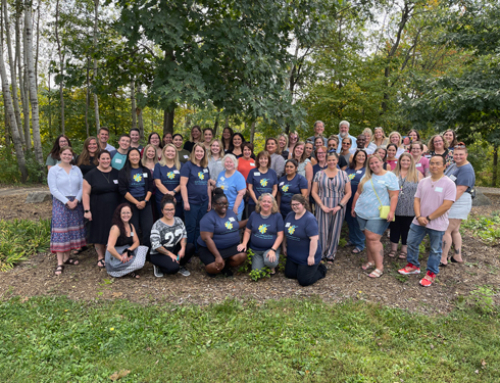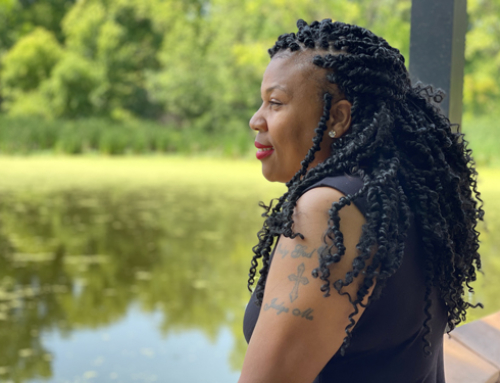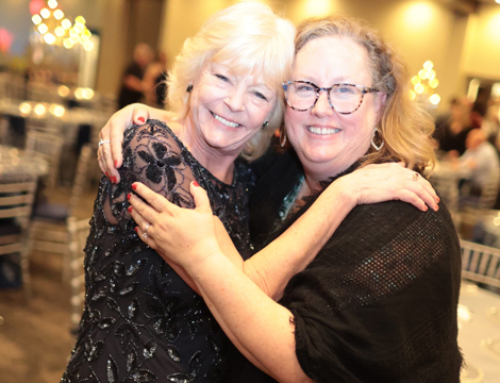By Lisa Lusk
Director of School Success
Academic success is not a guarantee for any student. Even children who have all the tools and support in the world to reach their potential may have significant hurdles to overcome requiring hard work in order to succeed. Imagine what it must be like for a student who comes to school hungry, or doesn’t have school supplies, or lacks healthcare, or doesn’t feel safe at home. Barriers to school success come in a variety of forms and we know that most of the time the challenges that families face are multilayered.
This was the case for a second grader in South St. Paul’s Kaposia Education Center. Micah had been diagnosed with ADHD, but was not taking his medication. It was a challenging situation for his teacher, Jennifer. There were disruptions in class, Micah’s attendance was poor, and communication with home was inconsistent. Jennifer has 30 students in her class and finding a way to help Micah could have been difficult.
This is a common challenge for many teachers – how to allocate time for a student who clearly needs support, without having the time or the resources to help. Fortunately for Jennifer, she had a 360 Communities Partners For Success® family support worker, Mary, in her school as a valuable resource to support Micah.
360 Communities Partners For Success is a school-based program that helps students and families overcome barriers to school success, from pre-kindergarten to high school graduation. Family support workers partner with students, parents, and educators to open lines of communication, connect families to stabilizing community resources, and implement effective home-based strategies that increase parental involvement, boost attendance, and improve academic performance. During the 2015-2016 school year, 1,912 students from 941 families benefited from this program. Nearly one-third of those students attend schools in West St. Paul and South St. Paul.
We know that poverty is a significant barrier to success in school. According to the American Community Survey, more than one in ten Dakota County children are living in poverty. In West St. Paul, 16 percent of children are poor. In South St. Paul that number is 18 percent. While poverty is not the only barrier to school success facing students, it is an umbrella for a number of related barriers: hunger, homelessness, lack of transportation, lack of healthcare and more.
The Annie E. Casey Foundation reports that in 2011, 82 percent of fourth graders from low income families failed to read at grade level proficiency. They also said that students who are not reading proficiently by the end of third grade are four times more likely to drop out of high school. “Overall, 22 percent of children who have lived in poverty do not graduate from high school, a figure about three times greater than the rate for children with no family poverty experience.” This leads to decreased economic opportunities and increased likelihood of poverty in adulthood.
According to a study by the University of Minnesota’s Center for Applied Research and Educational Improvement (CAREI), for every dollar invested in the Partners For Success® programs, a conservative estimate of $5.00 is returned in social benefits, which includes personal earnings gains, higher tax revenues, public health savings, and crime reduction.
Eight Dakota County school districts have invested in this program, recognizing the need to support families with stabilizing resources and support so that all of their students have the best opportunity to reach their potential. At the Kaposia Education Center, Mary has provided critical support for parents, students and educators. In Micah’s case, she has helped make an enormous difference.
Mary contacted Sarah, Micah’s mom, and discovered that there were problems with the family’s medical assistance. Sarah was also four months behind in rent, facing imminent eviction, and was a single mother with a limited support system and no transportation. Mary established a relationship with Sarah and Micah to overcome their challenges.
Sarah, Micah, Jennifer and Mary started a family learning plan with the goals of improving Micah’s attendance, boosting his academic performance, and ensuring he consistently takes his medicine. Mary and Sarah also set goals around stabilizing the housing and finances of the family. They talked about finding a job within walking distance of her home since she did not have access to a car.
Mary and Sarah brainstormed employment options. With Mary’s encouragement, she landed a job as a clerk at a local store. Sarah negotiated a higher pay rate for herself after the interview and took her first step toward becoming more self-sufficient.
With this job, Sarah was able to show Dakota County that she would soon be financially self-sufficient and be able to pay her rent long-term. This qualified her for an emergency assistance grant. With her grant and her new full-time income, Sarah paid off the thousands of dollars of debt she owed her landlord and started paying her rent on a timely basis. As her life became more stable, Sarah was also able to resolve problems with her health insurance and could afford Micah’s ADHD medication.
The strength-based support she received through the Partners For Success program has helped build Sarah’s confidence. Since starting her job, she has received two promotions and now manages a store. A family member recently retired and gave her his car, eliminating her transportation barrier. This change in the family circumstances has had a profound impact on Micah’s success in school. With greater family stability and Micah consistently taking his medication, his attention in class improved. As a result of the partnership between Mary, Sarah, Micah and his teacher, Micah’s attendance and academic performance dramatically improved.
This program is successful because of the trusting relationships that family support workers are able to build with parents, students and teachers. By working together to open lines of communication, and to craft custom solutions to a family’s unique set of circumstances, success can be accessible to everyone.





